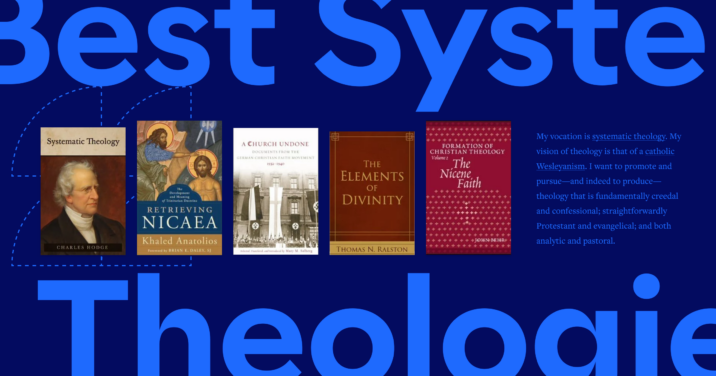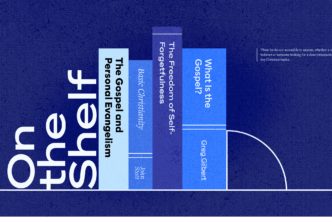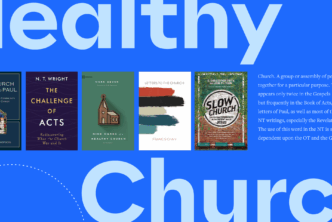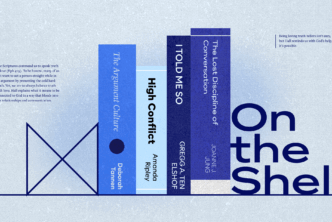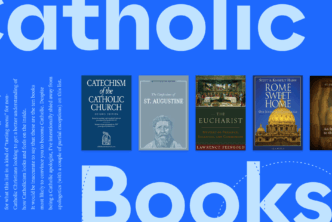My vocation is systematic theology. My vision of theology is that of a catholic Wesleyanism. I want to promote and pursue—and indeed to produce—theology that is fundamentally creedal and confessional; straightforwardly Protestant and evangelical; and both analytic and pastoral. Thus I want to do theology that is
- grounded in and normed by Holy Scripture,
- informed by the insights of patristic and medieval theology,
- accountable to the creeds,
- engaged with relevant Lutheran, Reformed, Baptist, and Anglican (as well as other) doctrinal formulations in both their scholastic and modern developments,
- committed to clarity of expression and rigor of argument, and
- alert to relevant cultural, moral, and pastoral concerns.
To do this, I need help—a lot of help!
In what follows, I offer brief reflections on theological method and, in doing so, point to some of the most helpful sources and resources that I am currently using. Of course, this list is personal and idiosyncratic, and it illustrates my general approach to theology as reflected in my recent and current theological projects.
Table of contents
- Mining the tradition: 20 historical–theological resources for systematic theology
- 17 Protestant mentors & resources in systematic theology
- 7 works for retrieving the “classical” tradition
- 13 resources of analytic theology: the “third scholasticism”
- 11 sources for general contemporary systematic theologies
Mining the tradition: 20 historical–theological resources for systematic theology
It is my conviction that any theology worth the name is concerned to articulate the “faith once delivered” (Jude 3). To do this, theologians should do their best to be informed by patristic and medieval as well as by Reformation/early modern and modern theological developments.
Of course, to do this merely on one’s own would be impossible! The systematic theologian is keenly a sort of “general practitioner,” and thus always reliant upon and learning from the specialists in the various subfields. This admission does not mean systematicians should not read and learn from primary sources, but it does mean that we should also be consulting—and in some cases relying heavily upon—the experts who specialize in various areas of historical theology.
9 patristic theologies
In patristic theology, I find myself returning to these sources again and again (admittedly reflecting my recent and current areas of research):
- R. P. C. Hanson’s huge The Search for the Christian Doctrine of God: The Arian Controversy, 318–381 is a bit dated, but it is still a treasure trove of insight.
- Lewis Ayres’s Nicaea and Its Legacy and Augustine and the Trinity are influential for good reason; they are quite helpful.
- Brian Daley’s God Visible: Patristic Christology Reconsidered is a careful articulation of important themes.
- John Behr’s two-volume The Nicene Faith is helpful.
- Khaled Anatolios’s work, especially Retrieving Nicaea, is very useful.
- Frances Young’s From Nicaea to Chalcedon gives good coverage of important developments.
- Warren Smith’s work on patristic theology, e.g., Passion and Paradise, is thorough and well-written.
- Spanning into medieval theology as well, David Bradshaw’s work, initially his Aristotle East and West, ranges into territory not always covered by Western theologians who mostly converse with the Latin traditions.
Retrieving Nicaea: The Development and Meaning of Trinitarian Doctrine
Regular price: $39.99
9 medieval and early modern theologies
In medieval and early modern scholastic theology, I continue to find great benefit in the following:
In late medieval and early modern Christology and the doctrine of God (my areas of current research), the work of Richard Cross is very helpful. His multi-volume history on the metaphysics of the incarnation is without peer. Its titles include:
- The Metaphysics of the Incarnation: Aquinas to Duns Scotus;
- The Metaphysics of Christology in the Late Middle Ages: William of Ockham to Gabriel Biel
- Communicatio Idiomatum: Reformation Christological Debates;
- Christology and Metaphysics in the Seventeenth Century
Similarly, Russell Friedman puts his impressive erudition on full display in his massive two-volume Intellectual Traditions in the Medieval University: The Use of Philosophical Psychology in Trinitarian Theology Among Franciscans and Dominicans, 1250–1350.
Other historians of medieval philosophy and theology are also helpful, such as
- Scott Williams, particularly his forthcoming work on Henry of Ghent and
- Marilyn Adams, especially her work on John Duns Scotus in Some Later Medieval Theories of the Eucharist and relevant sections of Christ and Horrors.
The contributions of Richard A. Muller, and the students trained by him, are invaluable. Perhaps pride of place goes to Muller’s massive Post-Reformation Reformed Dogmatics. I personally owe an immense debt to Richard and am grateful for all that I have learned from him. We should hope he expands his work beyond its current four volumes.
2 works on modern theology
From historians of modern theology, I am currently learning a great deal from recent studies on issues related to the theology of Karl Barth.
- Christiane Tietz’s Karl Barth: A Life in Conflict is a page-turner that is hard to put down! It is both exhilarating and challenging as well as worrisome and depressing.
- Mary M. Solberg’s A Church Undone: Documents from the German Christian Faith Movement, 1932–1940 is a sobering collection of treatises drawn from the theologians who offered intellectual support to Adolf Hitler and Nazi ideology. This collection not only offers historical insight but serves as a cautionary tale as we consider theology’s engagement with politics.
A Church Undone: Documents from the German Christian Faith Movement, 1932–1940
Regular price: $46.99
17 Protestant mentors & resources in systematic theology
Several major translation projects of important Protestant scholastic theologians hold immense promise. I am eager to see this work continue to flourish.
Among my current favorites are the following—though I hope someone will eventually translate the works of Franciscus Junius, Amandus Polanus, and William Twisse among the Reformed, as well as overlooked Roman Catholic giants of that era like Suarez, Mastri, Baro, Rada, Molina, and Fonseca!
5 Reformed theologies
Among the Reformed, pride of place goes to Petrus van Mastricht’s Theoretical–Practical Theology. In many ways, Mastricht is an impressive, model theologian.
Of course, others are important too. For instance,
- John Calvin’s Institutes of the Christian Religion (c’mon, Randy Blacketer, hurry up and finish the new translation!) and Francis Turretin’s Institutes of Elenctic Theology has a lot to offer.
- To swim upstream of common sentiment for a moment, I actually think Charles Hodge’s much-maligned Systematic Theology is worth consulting on various topics.
- In addition, much of the current love for Herman Bavinck’s Reformed Dogmatics is understandable. He is a serious theologian who is worth taking very seriously.
3 Lutheran theologians
Among the scholastic Lutherans, Johann Gerhard’s Theological Commonplaces is simply stunning. Gerhard combines careful biblical exegesis, vast knowledge of patristic and medieval sources, razor-sharp logical acumen, and deep pastoral sensitivity across thousands and thousands of pages. The range, depth, and power of this work is nothing short of astounding. I can say without hesitation that he is one of the best theologians I have ever read.
We can hope that teams of translators will also take up the work of Johannes Quenstadt and David Hollaz as well.
9 works of Methodist theology
Many overlook the major systematic theologians of the Methodist tradition, often remaining unknown—in many cases by Wesleyans, too.
William Burt Pope’s three-volume Compendium of Theology is far and away my favorite. Somehow it is both incisive and doxological (in places almost poetic), learned and well-informed, and unfailingly orthodox and unflinchingly Wesleyan.
But other nineteenth-century theologians are worth taking seriously, too. John Miley’s multivolume Systematic Theology, for instance, is erudite and often brilliant. The following works also offer insights, not only into the theology of the era, but also into the topics discussed:
- Thomas Ralston, The Elements of Divinity
- Samuel Wakefield, A Complete System of Christian Theology
- Miner Raymond, Systematic Theology
- Luther Lee, Elements of Theology
- Thomas Summers, Systematic Theology
- Richard Watson, Theological Institutes
One of my all-time favorite short essays in theology comes from this era’s literature: The Life, Experience, and Gospel Labors of Rt. Rev. Richard Allen by Richard Allen. As the founder of the African Methodist Episcopal Church, Allen offers a work that is simultaneously orthodox, confessional, doxological, and spiritually compelling.
Systematic Theology: A Complete Body of Wesleyan Arminian Divinity (2 vols.)
Regular price: $19.99
Easily access and compile theological resources from your systematic theologies using Logos’s Theology Guide.
7 works for retrieving the “classical” tradition
Recent projects in “retrieval theology” seek to mine the resources of the tradition for constructive work today. Such projects are beset by various temptations, perhaps most commonly the tendency to confuse historical description with constructive argument and the all-too-prevalent tendency to conflate “classical theism” or “the Great Tradition” with a distinctly Thomist branch of that tradition. Nonetheless, I am convinced that retrieval theology holds great promise and is a worthy enterprise.
The following are among the most helpful works:
- Thomas Joseph White’s “Thomistic Ressourcement” series, especially his The Incarnate Lord: A Thomistic Study in Christology, his The Trinity: On the Nature and Mystery of the One God, along with the multivolume Principles of Catholic Theology
- Matthew Levering’s work, especially his Scripture and Metaphysics and his Engaging series (Engaging the Doctrine of Creation, Engaging the Doctrine of Revelation, Engaging the Doctrine of the Holy Spirit, etc.)
The Incarnate Lord: A Thomistic Study in Christology (Thomistic Ressourcement Series)
Regular price: $27.99
Engaging the Doctrine of Creation: Cosmos, Creatures, and the Wise and Good Creator
Regular price: $44.99
Engaging the Doctrine of Revelation: The Mediation of the Gospel through Church and Scripture
Regular price: $44.99
Engaging the Doctrine of the Holy Spirit: Love and Gift in the Trinity and the Church
Regular price: $44.99
13 resources of analytic theology: the “third scholasticism”
I have been involved with the movement known as “analytic theology” since its inception—indeed, from before we even had a name for it. Although many theologians committed to the Great Tradition remain suspicious of it, it is possible to see analytic theology as a “third scholasticism” (where first scholasticism refers to high and late medieval theology, and the second corresponds to early modern scholasticism). In other words, analytic theology, with its commitments to clarity of expression and rigor of argument, is—or at least has the potential to be—a contemporary version of scholastic theology.
Those interested in analytic theology can engage it through various journals devoted or adjacent to its study, such as the Journal of Analytic Theology, Religious Studies, Faith and Philosophy, and Philosophia Christi, as well as book series like Oxford Studies in Analytic Theology, Routledge Studies in Analytic and Systematic Theology, and Cascade’s Analyzing Theology Series.
In addition, the following are perhaps especially useful for theologians seeking to hone their skills in logic and metaphysics:
- T. Ryan Byerly, Introducing Logic and Critical Thinking
- Jc Beall and Shay Allen Logan, Logic: The Basics
- Alyssa Ney, Metaphysics: An Introduction
- Robert C. Koons and Timothy H. Pickavance, Metaphysics: The Fundamentals
- Michael Loux and Thomas Crisp, Metaphysics: A Contemporary Introduction
- Alvin Plantinga, The Nature of Necessity
11 sources for general contemporary systematic theologies
Among recent and contemporary (late twentieth century and twenty-first century) big-picture systematic theological projects, I highlight the following:
- Despite some significant theological disagreements with him, I consider Wolfhart Pannenberg’s three-volume Systematic Theology to be the gold standard of recent-vintage systematic theology. While his work may pale in comparison to some of the early modern Protestant scholastics, it remains the crowning achievement of a true systematic theologian and a towering intellect.
- Kate Sonderegger writes with an unmistakable style and a unique flair as well as passion and purpose. I disagree with her on some fundamental issues, but that disagreement does not diminish my respect for her.
- Beth Felker Jones and Daniel J. Treier have produced student-friendly textbooks that are learned and articulate.
I also look forward to the following forthcoming works:
- Sarah Coakley is one of the most well-read and articulate theologians I have encountered. She is also both creative and rigorous. Her systematic theology (currently in progress) is worthy of our attention and respect.
- Thomas Noble’s projected three-volume Christian Theology (with the first “volume” spaning three tomes) may fly under the radar for some readers due to its publication by a denominational press. However, it promises to be a fascinating work—a confessionally Wesleyan theology deeply shaped by the theologies of Karl Barth and, especially, Thomas F. Torrance.
- I anticipate the multi-volume works by Michael Allen and Kevin Vanhoozer, both writing from confessional Reformed perspectives.
- Additionally, William Lane Craig, who describes himself as a “Wesleyan,” is producing a massive multivolume Systematic Philosophical Theology in the analytic tradition.
Finally, I look forward to the publication of the recently completed Love Divine: Wesleyan Systematic Theology, forthcoming with Eerdmans, by Jason E. Vickers and myself!
Practicing Christian Doctrine: An Introduction to Thinking and Living Theologically
Regular price: $23.99
Related articles
- What Is Systematic Theology and Why Does It Matter?
- The Rich History & Practices of Methodist & Wesleyan Bible Study
- 25 Reformed Theology Books Everyone Should Know
- 29 Biblical Theology Books to Help You Go Deeper
- The 16 Best Books on Ecclesiology, Selected by a Theologian

